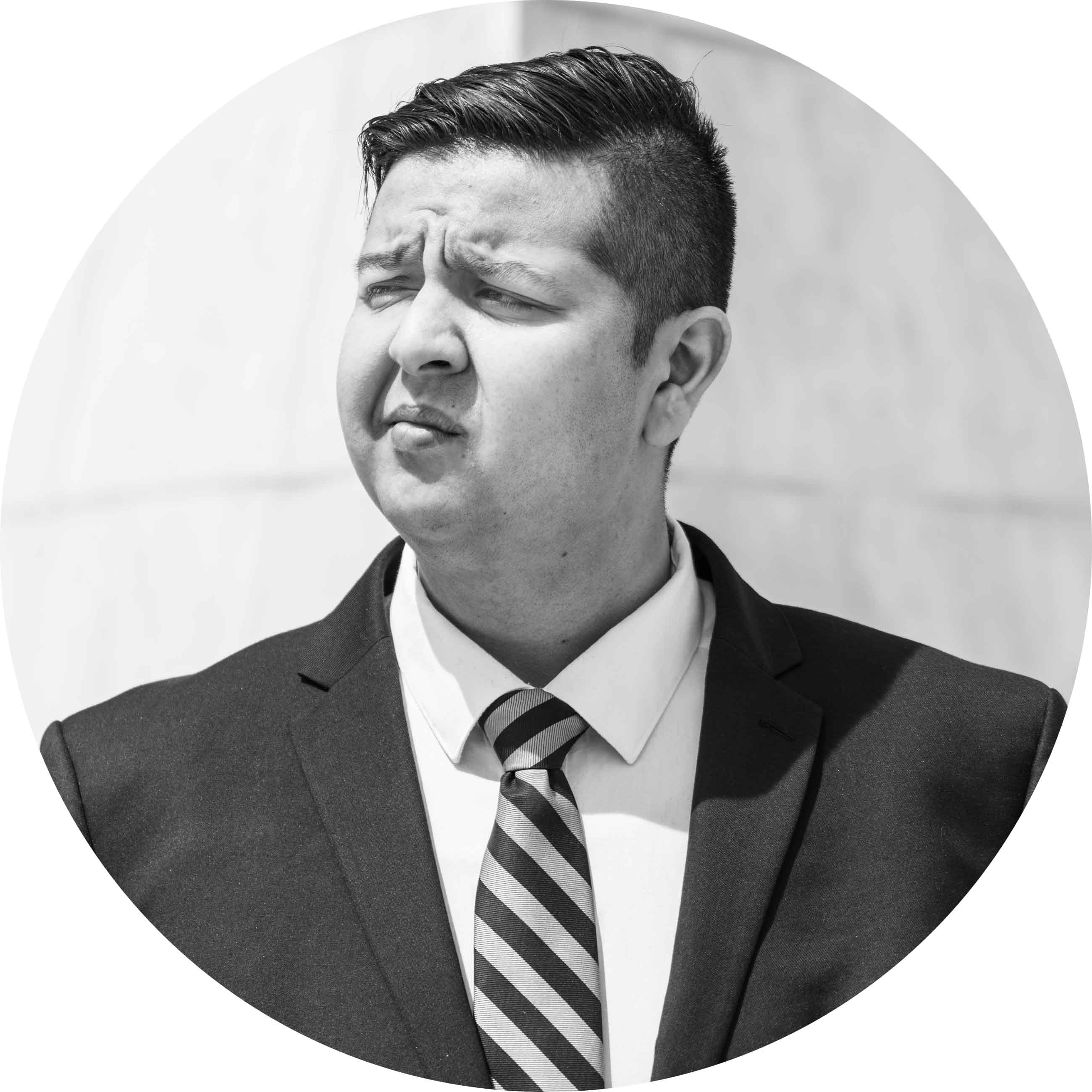

What I love about my job is being able to go to court regularly, thinking on my feet and problem-solving.
For almost as long as he can remember, University of Guelph-Humber Justice Studies alumnus Ovais Ahmad was clear on his professional goals: to attend law school and become a lawyer.
From an early age, Ahmad was drawn to matters of criminal justice and the law — he even wrote in his Grade 6 autobiography that he planned to pursue a law career. He became only more convinced this was the right path for him as he progressed through high school and found himself becoming increasingly passionate about social issues and advocacy, while also developing his ability to communicate in a clear and persuasive way.
“There was just something about helping people and working toward making people’s lives a bit easier that drew me to the practice of law, specifically criminal law,” Ahmad recalls now.
It was during his time at the University of Guelph-Humber that Ahmad built on that interest and began to understand exactly what it would take to become a lawyer. Immediately after graduating from UofGH, Ahmad attended law school at Osgoode Hall and passed the bar exam upon graduation.
Now, just a few years after graduating from UofGH, Ahmad has landed a job as Assistant Crown Attorney, doing exactly the type of meaningful work he always hoped lay ahead in his professional future.
Although Ahmad was clear on his career goals as a graduating high-schooler, he was considering several different universities as he began making post-secondary plans.
He eventually decided the University of Guelph-Humber’s Justice Studies program would be the best fit for him after a conversation with his brother, a de facto mentor for Ahmad who had experience attending a larger university.
“He told me that the smaller class sizes at the University of Guelph-Humber would give me more opportunity to have closer interactions with my professors,” Ahmad recalled.
“He made me realize that because UofGH is a smaller University, it offers huge benefits.”
Once he began attending the University of Guelph-Humber, Ahmad indeed saw how much he could gain from having one-on-one access to his professors. Years later, he still remembers the names of the professors whose courses, instruction, and mentorship left a long-lasting impression on the way he thinks about the justice system, the law, and more.
Ahmad also “vividly recalls” many of his courses and the lessons he took from them. As just one example, he remembers a UofGH class on correctional institutions that featured guest speakers who were living in a halfway house. For Ahmad, getting to hear their experiences with the criminal justice system first-hand was an influential lesson.
“In addition to everything else, the University of Guelph-Humber was so great in general at encouraging us to critically analyze a lot of different social issues,” Ahmad says.
Even beyond his coursework, Ahmad was determined to make the most of his experience at the University of Guelph-Humber.
The courses I took at the University of Guelph-Humber were instrumental in my criminal justice journey.”

In his second year, he joined UofGH’s chapter of Alpha Phi Sigma — an international criminal justice honours society — before eventually taking on a VP of communications role. Ahmad and his cohort of Alpha Phi Sigma members were instrumental in launching the University of Guelph-Humber’s first mooting team, setting the stage for the years of success UofGH students have since enjoyed at a variety of international moots. (Ahmad has continued to contribute to that success by volunteering as an alumni mentor.)
Ahmad’s extracurricular participation didn’t stop there. He helped to organize LSAT prep courses, he joined the Guelph-Humber Pre-Law Society and helped further build UofGH’s mooting teams, and he thoroughly enjoyed participating in CSI competitions. Another highlight for Ahmad was being named an Agora Fellow and participating in meaningful philosophical discussions with a group of UofGH students from different programs and educational backgrounds.
Looking back, he realizes now that those extracurricular activities had an enduring impact on his personal and professional development.
“A lot of it helped in very different ways,” Ahmad says. “When I started law school, the concept of mooting wasn’t foreign to me because I had that experience. In the first year of law school, we were encouraged to do two moots, and it was a lot easier to acclimate to those types of processes — that was something that was almost normalized since we’d been doing it for the past three years in undergrad.”
A great career fit
As Assistant Crown Attorney, Ahmad’s job responsibilities are mainly divided into three parts. Some of his time is devoted to case management, as Ahmad is responsible for overseeing more than 100 different case files and works to provide disclosure, follow up on evidence, reach out to victims, and ultimately decide an initial position for the Crown. Another major part of the job is attending bail or plea court, as the background work Ahmad has conducted relating to his cases is put on court record.
Finally, Ahmad spends a significant amount of time in the courtroom. Over the past year, he has already had the opportunity to run multiple trials, while also getting to serve as a junior on two Superior Court of Justice cases.
“What I love about my job is being able to go to court regularly, thinking on my feet and problem-solving,” he says.
“Every case will have its own share of problems. Figuring out how to solve those problems, how to get out of a legal bind, how to use the skill of advocacy when talking to a judge, how to say things that resonate with an audience — I really enjoy those challenges.”
Ahmad also likes that he has the opportunity to consider the social-justice and advocacy concerns that have long interested him. When he’s screening a case and determining the Crown’s resolution position, he can take into account certain factors that might be at play — for instance, issues of mental health, privacy, or dealing with communities that have been historically marginalized in the criminal justice system — and consider them as he works toward a resolution.
“The social justice aspect is something you can still consider and it manifests itself in many different ways,” Ahmad explains.
Those are not easy decisions to make, and as he considers those issues, he often thinks back to the courses he took at the University of Guelph-Humber and the discussions they sparked around marginalization and fairness in the criminal justice system.
“Having that recognition in my undergrad was a huge turning point in my career as a student, but also as a future criminal justice professional, because those issues came out while I was in law school and they still come out in my practice as an Assistant Crown Attorney,” Ahmad says.
“The courses I took at the University of Guelph-Humber were instrumental in my criminal justice journey.”

